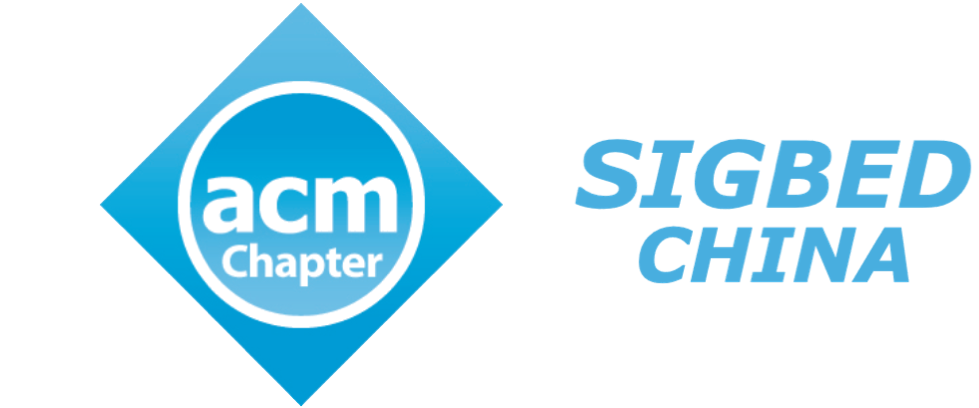Important Dates
workshop paper submissions
June 26, 2023
notification of acceptance
July 26, 2023
camera-ready workshop papers
August 11, 2023
workshop date
October 6, 2023
Call for Papers
The space industry is currently experiencing an unprecedented surge in the development of low-earth orbit (LEO) satellite mega-constellations, in order to meet the growing demand for global connectivity services and applications such as ubiquitous communication, smart transportation, smart cities, maritime surveillance, and disaster rescue. However, these mega-constellations present unique challenges for networking and computing in space due to their fundamentally different infrastructure from cloud and edge computing on the ground. In a LEO constellation, each satellite moves at high speed relative to both the Earth and other satellites, and must maintain its orbit at a speed of 27,000 km/h at an altitude of 550 km. Additionally, the reduced weight and volume of the satellites in mega-constellations increase the difficulty of designing networking and computing systems. The harsh space environment, characterized by deep vacuum conditions, radiation, strong vibrations, and extreme temperature ranges, further adds to the complexity.
As a result, the research community is taking a growing interest in exploring the opportunities and challenges associated with LEO mega-constellations. The proposed workshop aims to provide a platform for researchers to exchange ideas,
share their latest research findings, and discuss the current state of the field. This workshop is particularly timely, as it will significantly contribute to advancing our understanding of the complexities involved in designing networking
and computing systems for LEO mega-constellations. Such an understanding is essential for achieving universal connectivity and computing in space.
TOPICS OF INTEREST
Technical topics of interest include but are not limited to the following:
– Satellite networking
– AI in space
– Computing platforms in space
– Satellite networking and computing simulation tools
– Space application organization paradigms
– Satellite operating systems
– Space environment adaptive computing hardware
– Space-air-ground integrated network
– Space-air-ground integrated computing
– AI for space-air-ground integrated system
– Space-air-ground computing for smart city
– Signal processing
– 5/6G network and system
– Edge network and system
– Industrial internet and system
– Underwater and maritime system
SUBMISSION REQUIREMENT
Submissions should be original, unpublished research work addressing the above topics. Each submission is a single PDF file limited to 6 pages (two-column, 10-point, following ACM conference proceedings format, for which you may refer
to
https://www.acm.org/publications/proceedings-template) including figures, references, etc. Submissions must include author names and affiliations for single-blind peer reviewing by the technical program committee. Authors are expected
to present their papers at the workshop. Papers accepted for presentation will be published in the MobiCom Workshop Proceedings, and available at the ACM Digital Library.
SUBMISSION SITE
https://satcom23.hotcrp.com

Organizing Committee
TPC Chair
Chenren Xu, Peking University
Shangguang Wang, Beijing University of Posts and Telecommunications
Lili Qiu, Microsoft Research Asia and The University of Texas at Austin
TPC Vice Chair
Qing Li, Peking University
TPC
Feng Qian, University of Minnesota – Twin Cities
Jihong Yu, Beijing Institute of Technology
Linghe Kong, Shanghai Jiao Tong University
Mengwei Xu, Beijing University of Posts and Telecommunications
Tomaso De Cola, German Aerospace Center (DLR)
Xinggong Zhang, Peking University
Yiran Zhang, Tsinghua University and Beijing University of Posts and Telecommunications
Zeqi Lai, Tsinghua University
Web Chair
Liying Wang, Peking University
Program
09:00 am — 09:05 am
Openning Remark
09:05 am — 09:50 am
Keynote (Chair: Chenren Xu, Peking University)
Understanding Earth from Space — Near-realtime Earth Observation and IoT
Deepak Vasisht, University of Illinois Urbana-Champaign
09:50 am — 10:00 am
Break
10:00 am — 10:30 am
Session 1: Computing in Space (Chair: Qing Li, Peking University)
10:00 am — 10:10 am
SABM: Adaptive Backup Mechanism for Satellite Services
Chuanxiu Chi, Yiran Zhang, Qibo Sun, Shangguang Wang (Beijing University of Posts and Telecommunications)
10:10 am — 10:20 am
Can Orbital Servers Provide Mars-Wide Edge Computing?
Tobias Pfandzelter, David Bermbach (Technische Universität Berlin & Einstein Center Digital Future)
10:20 am — 10:30 am
Collaborative Resource Orchestration for On-Orbit Edge Computing in LEO Satellite Networks
Haofei Li, Chen Chen (Xidian University); Hao Wang (Xi’an Molead Technology Co. LTD.); Ying Ju, Qingqi Pei, Lei Liu (Xidian University)
10:30 am — 10:40 am
Break
10:40 am — 11:10 am
Session 2: LEO Satellite Network Design (Chair: Xiaolong Zheng, Beijing University of Posts and Telecommunications)
10:40 am — 10:50 am
Internet via Satellite: GEO vs. LEO, OpenVPN vs. Wireguard, and CUBIC vs. BBR
Jörg Deutschmann, Saeid Jahandar, Kai-Steffen Hielscher, Reinhard German (Friedrich-Alexander-Universität Erlangen-Nürnberg)
10:50 am — 11:00 am
Energy-Efficient Connectivity Planning of Inter-Satellite Links for LEO Satellite Constellations
Yue Li, Jiangtao Luo, Yongyi Ran, Jiahao Pi (Chongqing University of Posts and Telecommunications); Xin Zhou (Jiangxi Science and Technology Normal University)
11:00 am — 11:10 am
Coverage-Aware Cooperative Caching and Efficient Content Distribution Schemes in LEO Satellite Networks
Ruili Zhao, Jiangtao Luo, Yongyi Ran (Chongqing University of Posts and Telecommunications)
11:10 am — 11:15 am
Break
11:15 am — 12:00 pm
Panel (Chair: Nitinder Mohan, Technical University Munich)
Jointly organized with LEO-NET (https://leo-net-workshop.github.io/2023/).
Paulo Mendes, Airbus
Mike Puchol, Google X
Yuanjie Li, Tsinghua University
Mengwei Xu, Beijing University of Posts and Telecommunications (BUPT)


